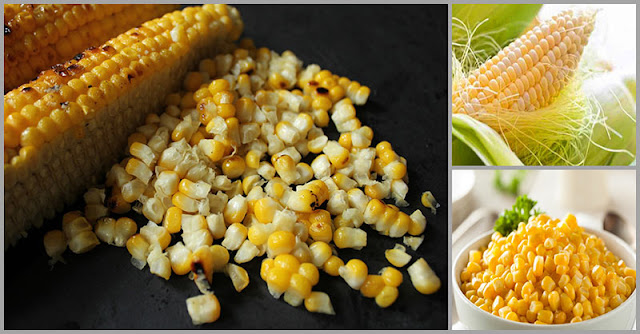The seeds or kernels of corn, which is most commonly consumed, hold the majority of the corn’s nutrients. They come in multiple colors depending on the species, variety, and where the corn is grown. Sweetcorn, another genetic variant, has less starch and more sugar in the nutritive material.
Nutrition Facts Of Corn
Aside from providing the necessary calories for healthy daily metabolism, corn is also rich in vitamin A, B, E and many calories. It has antioxidants that act as anti-carcinogenic agents and prevent Alzheimer’s disease. Furthermore, its fiber content plays an important role in the digestive ailments like hemorrhoids, colorectal cancer, and constipation.
Health Benefits Of Corn
Corn is rich in phytochemicals and provides protection against a number of chronic diseases.
Prevents Hemorrhoids
A cup of corn has a fiber content that amounts to 18.4% of the daily recommended amount. It helps in alleviating digestive problems such as hemorrhoids, constipation, and being a whole grain, it lowers the risk of colon cancer.
Fiber aids in bulking up bowel movements, which stimulates peristaltic motion and the production of gastric juice and bile. It can also add bulk to overly loose stools, which can reduce the chances of irritable bowel syndrome (IBS) and diarrhea.
Prevents Anemia
Corn helps prevent anemia. It has adequate amounts of iron, which is needed in the formation of new red blood cells. A deficiency in iron is one of the main cause of anemia.
Promotes Growth
Corn is rich in thiamin and niacin. Niacin deficiency leads to pellagra: a disease characterized by dementia, dermatitis, and diarrhea. Thiamin is needed in maintaining cognitive function and nerve health. Moreover, corn is an excellent source of pantothenic acid, which play a vital role in the protein, carbohydrate, and lipid metabolism in the body. It also provides a large percentage of the daily folate requirement, thereby preventing the birth of underweight infants and neural tube defects in newborns. Plus, its vitamin E, which is a natural antioxidant is necessary for growth and protection of the body from diseases and illness.
Protects Your Heart
Studies found that corn oil can reduce the risk of various cardiovascular disease due to its anti-atherogenic effect on cholesterol levels.
One of the best ways to improve heart health is through the consumption of corn oil, due to the fact that corn is close to an optimal fatty acid combination. This allows omega-3 fatty acids to strip away the damaging LDL or bad cholesterol and replace them at the binding sites. This will result in a reduction of the chances of arteries becoming clogged, lowers chances of heart attack and strokes and reduces blood pressure.
Provides Essential Minerals
Found in all varieties of corn are abundant amounts of minerals such as magnesium, iron, phosphorus, zinc, manganese, and copper. Magnesium is necessary for increasing bone mineral density and normal heart rate. Phosphorus is needed for optimal kidney functioning, regulating normal growth, and bone health. It also has trace minerals like selenium, which is hard to found in normal diets.
Prevents Cancer
A study at Cornell University revealed that corn is a rich source of antioxidants which can fight cancer-causing free radicals. Sweet corn, when cooked, increases its number of usable antioxidants. It is a rich source of ferulic acid, an anti-carcinogenic agent that can fight tumors that lead to liver and breast cancer. Purple corn, on the other hand, has anthocyanins that act as scavengers of cancer-causing free radicals. Many studies show that antioxidants can reduce many of the dangerous forms of cancer because of their ability to induce apoptosis in cancerous cells while leaving healthy cells unaffected.
Controls Diabetes
Consumption of kernels helps in the management of non-insulin dependent diabetes mellitus (NIDDM), according to studies. Due to the presence of phenolic phytochemicals in whole corn, it is proven to be effective against hypertension. Phytochemicals regulate the absorption as well as the release of insulin in the body, which leads to the reduction of chances of spikes and drops for diabetic patients.
Skin And Eye Care
Beta-carotene, which forms vitamin A in the body, is present in yellow corn. It is essential for the maintenance of good vision and skin. Vitamin A benefits the health of the skin and mucous membranes and also boost the immune system.









